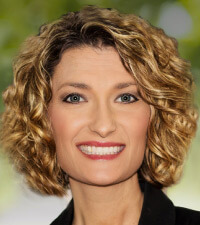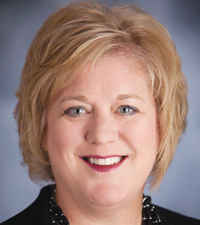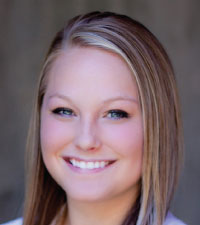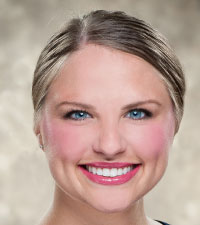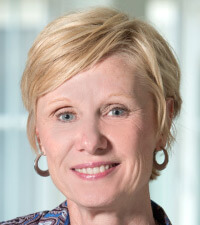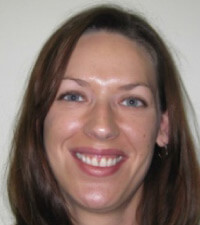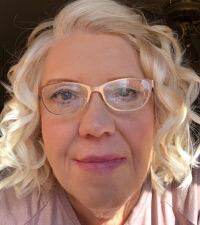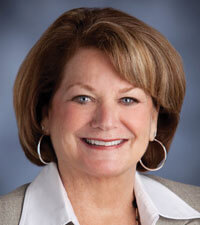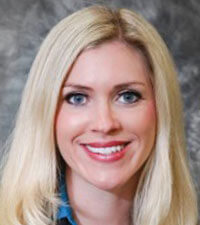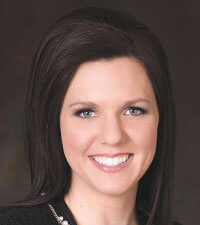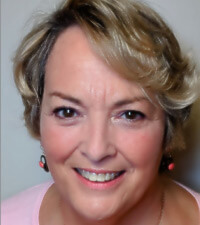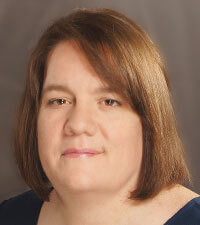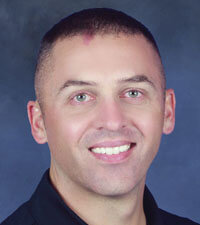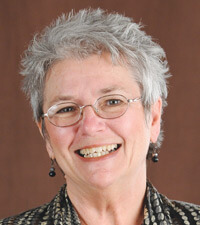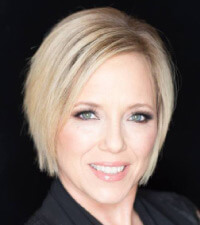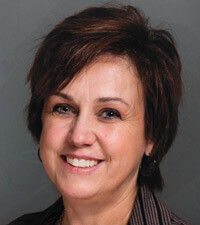Senior Living in Lincoln, NE – 2019
This Spring, Spend Time with Family and Talking to Elderly Relatives about Their Priorities for Retirement Living
After the rush of the holidays, when many families enjoy the opportunity to get together with parents, grandparents, and other senior family members, the late winter and early spring months are an excellent time to reflect on the health concerns of elderly loved ones and prompt a conversation with your senior family members about their wishes for retirement and living arrangements for old age. The tradition of spring cleaning is meant to help set aside time to take care of important household tasks that have been set aside for part of the year. Those who follow the spring cleaning tradition, or would like to start, might use their spring cleaning as an opportunity to help elderly family members organize their belongings and discuss the future.
Even if a senior family member is completely healthy and capable of performing all their household tasks today, having this conversation in early years can prevent stress and confusion in later years when old age or health concerns become a greater issue. Many professional services can offer advice on important issues that seniors face and the many choices and services available to assist seniors. Because every senior is an individual, with their own unique health needs and personal priorities for their living situation, we also asked Lincoln business experts their opinions on their personal experience with their families, and what kind of feedback they have received from their customers about different services available for seniors.
As a mission-focused non-profit with locations in 28 Nebraska counties, the mission of Tabitha is to offer a comprehensive line of senior care services. According to senior living advocate Aubrey Paulsen, Tabitha seeks to serve seniors at whatever stage they may be in their aging journey. “Tabitha’s one of the few nonprofit, for-purpose organizations serving Seniors in Nebraska and approach our work in the right way, for the right reasons. You can call Tabitha experts, with any question, free of charge or obligation. We’ll find the right answer for you, even if that means utilizing a resource other than Tabitha,” says Paulsen. As the baby boomer generation retires at a record rate of 10,000 a day, Paulsen anticipates quality senior care services will grow more crucial to American families. “Seven out of ten adults over 65 wish to remain in their homes; however, 70 percent will require some form of assistance,” says Paulsen. Rather than think of all care options as “nursing homes,” it is widely recommended that families familiarize themselves these types of care options to find the one that most fits their needs:
- Senior living
- Assisted living
- Short-term and long-term skilled nursing and rehabilitation
- Residential-style skilled nursing
- Hospice care
Paulsen encourages families to reach out to Tabitha with any questions they have about differing levels of care for seniors. “We’re here to help take the burden off loved ones and caregivers. We will listen, learn and provide expert guidance to best fit your unique situation. Starting with Tabitha will ensure you make informed decisions and our strong continuum allows us to seamlessly work alongside you as your needs evolve,” says Paulsen. For example, for seniors living independently, some services are meant to help with common needs like cleaning or meal preparation.“At Tabitha, our goal is to utilize all of the community’s resources available to help Seniors in whatever way necessary. A Tabitha expert can coordinate bringing in cleaning services or companion care into your home or even set up daily delivery of Tabitha Meals on Wheels,” says Paulsen.
Each senior is an individual, and living options should be considered based on how they can meet their needs as an individual.
An example of specialists in transitional care would be Old Cheney Rehabilitation, which opened in 2017 and is designed to provide transitional care for clients who require a regimen of therapy or skilled nursing following an acute hospital stay in order to ultimately return home.
“Transitional care is an optimal setting for patients that require a regimen of skilled therapy or nursing care following an acute hospital stay,” writes the Old Cheney Rehab leadership team. “The rehabilitation services at our facility include physical, occupational, respiratory, and speech therapy services. Our goal is to help each patient get back to living an independent life. Rehabilitation services are offered seven days a week, up to three times a day as tolerated,” they write. Clinical services are provided based on the individual needs of a patient. These include respiratory services, infusion services, nursing services, and complex medical services targeting specific medical issues.
Lancaster Rehabilitation Center offers both a short-term rehabilitation program and long-term care. The rehabilitation program is designed to promote recovery. “The program’s goal is to help you regain a full range of functional abilities while preventing complications. This includes frequent and thorough updates on your therapies, schedules, and progress. We invest time to work with you and your family to develop the right plan for long term success!” says Amy Fish with Lancaster Rehabilitation Center.
Long-term care offers 24-hour health care and assistance with daily tasks, including certified nursing assistants, culinary services, social services, beauty and barber shop services, and attending physician and therapy services. The Lancaster Rehabilitation Center welcomes individuals to bring belongings which will help them feel at home. “Much of that will depend on your intended length of stay with us. We do encourage you to bring your personal items to make your room as homelike as possible. We only ask that you consider your own safety and the size of your room.” Families considering the Lancaster Rehabilitation Center should take into consideration their loved one’s medical needs and talk to their physician. “The first thing we will need is a physician order from your doctor indicating a need for placement at our facility. Our staff will then do a pre-screening visit with you or your family to ensure we can meet your needs,” notes Amy.
In contrast to transitional care, which focuses on helping patients recover and return home following a hospital visit, memory care focuses on providing ongoing support to those suffering with Alzheimer’s or dementia. This is why it is important for families to keep the differing types of care in mind. Not all services may fit an individual’s particular needs. Sumner Place Skilled Nursing & Rehabilitation is an example of a residency offering these three types of care: short-term/rehabilitation, long-term/skilled nursing, and Alzheimer’s/dementia care. Megan Herter, admissions and public relations coordinator for Sumner Place Skilled Nursing & Rehabilitation, says that they focus on providing resident-focused care, independence, and a home-like atmosphere. “Our culture is what really sets us apart. Family Serving Family is a value that we have truly adopted,” says Herter. “Our multi-disciplinary team of professionals deliver superior clinical care, with cutting-edge programs and consistent deficiency-free results on the annual survey conducted by the Nebraska Department of Health and Human Services. All operating decisions are made locally to assure that Sumner Place remains responsive to the needs of our residents and the community.”
An example of a community that specializes in memory care is CountryHouse Residence. Senior living consultant Kayla Jerkovich says this focus on Alzheimer’s and memory care is central to their mission. “CountryHouse is dedicated solely to people who need memory care, and our families tell us this was very important to them as they chose a community for their loved one. Everything in our community centers around what supports people with Alzheimer’s or other forms of dementia best.
Our floorplan is set up to allow residents the freedom they’re used to enjoying at home, but with added supports to make sure they are safe and secure. Our staff is specially trained in how best to communicate with and encourage our residents, in addition to how to provide care. Our activities and daily outings in the community are all planned around what gives residents moments of joy and connection. Even the color of our dishes was chosen to reduce the depth perception problems dementia can cause, which helps reduce frustration and make meals more enjoyable! We hear from families that they’re amazed how much happier and more engaged their loved one is after they’ve settled in. That is the highest compliment we could ever receive.
The road our residents and families walk is difficult, and being able to be there for them on that road is an honor. We truly do feel like family.”
Barbara Scott is the director of clinical operations for Legacy Retirement Communities. Scott believes it is wise for seniors to organize their belongings as one of their first steps prior to considering senior living options. “A stepping stone prior to moving to independent or assisted living would be downsizing your current home. One of the most difficult things that people encounter upon moving is the fact that the apartment size may be much smaller than their current home and it is hard for people to let go of some of their belongings. Challenge yourself or your loved one to practice downsizing before a move is even being considered. These small changes allow for an easier transition later on if necessary. If you’re seeking additional help, Changing Spaces SRS in Lincoln is a great resource. They are professionals who deal with rightsizing, downsizing, estate sales and more,” says Scott.
When a family is prepared to choose from many senior living options available in Lincoln, Scott advises touring your top options first. “Figure out what is most important to you. Is it location, dining, activities, cost? Maybe you have a preference on which side of town you’d like to live on. If dining or offered activities is your most important, ask to see a menu in each community or the activities calendar. Most communities would allow you attend an evening meal as a guest to be able to ensure that this meets your expectations,” says Scott.
In Scott’s opinion, one of the most important distinctions families should understand is the difference between assisted living care and skilled care. “Speaking in terms of operating independent and assisted living, I think it is important for people to understand what staff or the community are allowed to do under the guidance of the state regulations. Under state guidelines, assisted living care is quite limited compared to skilled care,” says Scott. While this topic requires some work from families to research the different services, Scott believes it will ultimately help families have clarity on what the caregiver provides. “I highly recommend taking the time to understand the difference. Educating yourself alleviates any confusion between you and the caregiver and ultimately results in better quality of life and well-being for the one receiving care,” says Scott.
Scott says one of the unique services provided by Legacy Retirement Communities is offering a licensed practical nurse 24/7. “I feel the residents knowing that a nurse is available 24/7 for both independent residents and assisted living residents gives the residents a peace of mind,” says Scott. They also offer Legacy Plus for residents who live independently. “This is a scheduled service in which residents pay a small fee for certain assistance such as bathing, laundry, bed making, and walking your dog,” explains Scott. These are just a few examples of services Legacy Retirement Communities offer to independent residents.
As part of its mission to help seniors live as independently as possible, the Lincoln Housing Authority works in a collaborative partnership with Aging Partners. Linda Hecht, the resident services specialist for the Lincoln Housing Authority, works closely Jacki Eden, the care manager for Aging Partners. Spring cleaning season is a time when both Hecht and Eden work together with seniors to help them organize and prepare for their future. “We provide in-house educational programs to help residents organize and declutter,” says Hecht. There are community programs designed to help seniors who want to live independently in their own home.
Jacki Eden encourages seniors and family members to read the Living Well Magazine for information on Aging Partners’ programming. “For example,
The Handyman Program can do some outdoor spring cleaning for clients who live in their own home,” says Eden.
According to Hecht, it is very important for families to plan ahead and understand whether the community they are interested in has a waiting list and can offer the services the senior needs.
“Often, when someone inquires, they are looking for placement immediately. Mahoney Manor’s current waiting list is nine months to a year. So, I will make referrals to Aging Partners for other senior housing options. Families also do not seem to know about the different options that Lincoln Housing Authorities will offer. People may not be aware that there are other options that Lincoln Housing Authority might have available to accommodate them,” says Hecht.
According to Eden, thanks to subsidization by the Congregate Housing Services Program, they are able to help eligible seniors find affordable services to remain independent. “The CHSP program available at Mahoney Manor works to ensure that they can live independently through a grant provided by HUD, Housing, and Aging Partners working together,” says Eden.
In contrast to residential housing options for seniors, in home healthcare is meant to assist seniors who wish to remain in their original homes, whether independently or with family. Grace Kats, RN/BSN-CHH, is the director of Graceful In Home Healthcare. She says that many seniors and family members have been excited to learn about their free home health consultation services. “They feel it was so much easier meeting us in person, and being able to ask all their questions, and getting guidance in how to go about getting set up with home health,” said Kats.
During face-to-face consultations, Kats hopes that seniors can have all their questions answered about the various services available and how they can service seniors’ needs. “Many times, families and elders state they wish they had known sooner about Graceful In Home Healthcare Free consultation. We encourage everyone looking into home healthcare to give us a call to see if we can help them find what fits their individual needs,” says Kats.
Fallbrook Assisted Living and Memory Care is an MJ Senior Housing Community located comfortably in the Fallbrook Neighborhood in North Lincoln. MJ Senior Housing has over 20 years of senior housing experience including ownership, development, and management of senior housing. Currently their portfolio includes independent living, assisted living, and memory care assisted living communities in Nebraska. Fallbrook is their newest community.
“Making a move from one home to another is hard for anyone. It’s particularly hard for seniors. I love the fact that someone can move in with us and as his or her needs change, we can adjust the services we provide for them, so they can continue staying right here at Fallbrook,” says Virginia Cole, executive director. When helping residents and their family members determine the best level of care, a nursing evaluation is completed by one of Fallbrook’s on-site nurses.
“Our services are designed to support you in maintaining as much independence as possible,” says Deb Maguire, director of healthcare. For residents who live in Fallbrook Memory Care, the architecture, design, and programming is meant to remove frustrating problems for those affected by
Alzheimer’s or some other form of dementia. “We believe these design features allow for our residents to have as much personal success as possible,” says Virginia.
Fallbrook is excited to open its doors and welcome its first residents this month. The Fallbrook focus is “We’re all about YOU!” and they mean it. They deliver on that motto in the services they offer, providing residents with six levels of care.
Orchard Park Assisted Living was originally founded by Virgil and Jan Carner. Their mission was to long-term care which provided more than the traditional nursing home. Virgil notes that they are committed to “a health-first philosophy that emphasizes familiar comfort and creating moments of joy for each resident.”
Virgil’s advice for those looking for 24-hour long-term care is to consider the three Cs:
- Care
- Comfort
- Cost
Meals at Orchard Park include home-style cooking. “Our cook’s goal is to create dishes that remind residents of the favorites they’ve been cooking and eating their whole lives,” writes Orchard Park Assisted Living. Private apartments give residents the choice to enjoy reading, television, or private reflection on their own, and social activities like card games and coffee socials are also regularly available.
Barb Tyler, the director of community relations for The Woodlands at Hillcrest, says that besides exceptional health care, their mission is to offer exceptional hospitality, amenities, and security for residents and their families.
“The Woodlands offers both assisted living and memory care, making any future transition for more care easier on both the family and the resident, as they are familiar with the both the staff and community. Our assisted living offers some services that others do not, such as two-person assistance. We hope this is the family’s last move for their loved one, with the goal of staying with us until end of life,” writes Tyler.
The Woodlands provides family resources which are meant to help families considering care options for loved ones. “Go and tour different communities to see what is out there! Two bedroom/two baths, one bedroom with a den…what do I really need in order to live comfortably? Participate in all events open to the public as a person can get a ‘flavor’ of the community, such as The Woodlands. Our Valentine Tea on February 15 is one such event; come and enjoy our guest violinist and light refreshments.” Tyler’s advice to families is to pay attention to their loved one and consider financial options and benefits for different housing options. “Look at their health situation TODAY, and look into the future as well; is there a condition that their loved one has that will only worsen as time goes by? Can the community take care of the condition with an experienced and trained staff? Finances are a consideration; is there a LTC policy in place? VA benefits? Pension and savings? All are to be considered for budgeting purposes.” Tyler emphasizes that one important topic every person should ask about is long term care insurance policies, way before retirement or health problems creep up. “Long-term care, many of which are available through employers, are only going to get more expensive as our population ages. The younger you are when you get them, the less expensive they are. They have played a role in making a move even possible in some cases,” says Tyler.
An option for some seniors who wish to remain in their home is personal in-home care, which is a focus of Home Care Partners of Nebraska. As a co-owner, Karla Frese provides her perspective on how this choice can help seniors maintain their independence while providing peace of mind to their family. Frese believes that spring cleaning can also be a useful time for helping senior family members. “It is important to prepare for what can be an emotional process. Spring cleaning provides the opportunity to reduce the risk of falling by removing clutter, but also helps you honor your heirlooms and choose joy.” Frese offers these helpful tips to help begin the process:
- Don’t do it alone. Ask someone who doesn’t have the same sentimental relationship to items to help. An outside opinion can help determine if an item is truly necessary. Home Care Partners of Nebraska caregivers can provide support and help with the stress of clearing the clutter.
- Remember your timer. Do small tasks and when it gets overwhelming, come back to it. Setting 30-45 minute cleaning session helps manage your time and keeps you from getting lost too far down memory lane.
- Honor through your speech. Thank you for serving me and providing me memories of (this item), then with a thankful heart bless and release the item (donate) to share with the joy to a new home. (You can see more of this in the Netflix series, Tidying Up with Marie Kondo.)
- Capture the story. While you are cleaning you may come across items that spark a memory or story. Document these memories through audio, oral histories, written notes and share photographs with your family. Your memories are precious and part of your family history.
- Share. Determine which items are important to share with loved ones. Sharing memorabilia will bring it to life, give purpose, meaning, and intention.
Frese also suggests that having open conversations can help families focus on what is most important. “They may ask for an item that has a special story behind it for you to share with them. This will make the item a true treasure for them,” says Frese. “If you have larger cherished items you wish to share, take a picture and document the meaning of it. Then give the gifts while you can–in person! Home Care Partners of Nebraska offers caregiving services created to improve quality of life and provide peace of mind. Let us help you in your spring cleaning to clear the clutter and embrace the joy of today!” says Frese.
Natalie Leon is the owner and executive director of Visiting Angels in Lincoln. “The services we offer help the elderly continue to live in their homes. Working families are struggling; their days are longer, they barely have time to eat dinner together, and they have even less time to spend caring for their aging parents. Visiting Angels helps ease the daily load by providing non-medical in-home care,” writes Leon. With 11 years of experience in health care, Natalie Leon says the importance of a service like Visiting Angels is the option it offers to families with seniors where moving isn’t desirable. “Through my research, it was evident that with the combination of a rapidly growing senior population, the rising costs of nursing homecare and depleted retirement funds, there’s an urgent need for in-home elderly care,” writes Leon. Visiting Angels’ services range from Alzheimer’s/dementia care and medication reminders to assistance with daily tasks and meal preparation.
While an in-home care program may be a good choice for independent seniors who wish to remain at home, chronic illness and individuals approaching end of life often require much more comprehensive services. Toni Jones is a patient care manager at Avalon Hospice. An affiliate of CURO Health Services, Avalon Hospice’s mission is to honor life and offer compassion to individuals and their caregivers when facing a life-limiting illness. Jones explains her work at Avalon Hospice this way: “We help patients control their symptoms, such as pain and nausea that are causing them to live less than a comfortable life. Our patients receive nursing visits to monitor symptoms and work on solutions, an aide to assist with personal cares, a social worker to address financial and social issues, and a chaplain to address religious and spiritual issues. When we receive a referral, the candidate’s medical history is reviewed to determine if they meet the criteria for whatever their primary diagnosis is. Those criteria are set by the Centers for Medicare and Medicaid, and apply to all hospices in the United States,” writes Jones. One of her personal priorities has been helping patients and families understand the importance of hospice care. “People on hospice live 33% longer than those who aren’t because the quality of their lives is better,” says Jones. An aspect of hospice care that many families may not be aware of is that hospice care can be administered wherever an individual patient calls home. This could include any of the following housing options:
- A home or apartment.
- A relative or friend’s home.
- An assisted living facility.
- Any traditional nursing home.
Another specialist in medical services for patients facing a life limiting illness is Hospice Community Care. A common misconception about hospice care is that it is only limited to patients of illnesses who will soon die. Lisa Pham, executive director, began her nursing career in 1997. “I’m incredibly honored to have been given the opportunity to serve in my current position at Hospice Community Care of Nebraska. I am so lucky to work with such wonderful people who truly exemplify the heart of hospice care,” says Pham.
Hospice Community Care’s advice to families is to look at hospice care as a way of helping family members treat a difficult medical condition in a way that promotes their quality of life: “Receiving hospice care does not mean giving up hope or that death is imminent. The earlier an individual receives hospice care, the more opportunity there is to stabilize your medical condition and address other needs. Some patients actually improve and may be discharged from hospice care.”
Because of the variety of living arrangements available to seniors, some local organizations specialize in offering information drawing from their experience in the healthcare field to families seeking answers to their questions. For example, Kyle Johnson, the owner of Care Consultants for the Aging, discussed some of the materials available to walk families through these topics and empower them to make their decisions. “We are Nebraska’s largest in-home care registry. All of our caregivers are CNAs and they work directly for the client. The client is 100% in control of their caregiver schedule, and we do not require any minimum of hours or financial deposit to begin services,” says Johnson. A resource they offer is the ElderCare Resource Handbook. “This is a publication that our office puts out every two years, and has hundreds of resources for any elder care need. Please visit LincolnHandbook.com, or stop by our office to pick a copy of your own,” says Johnson.
Johnson believes the winter months can be an isolating time for seniors, and offers this advice: “We strongly encourage our clients to find a senior center near their home where activities take place daily, and many times will include a meal option. Many local churches also have retirement groups that meet frequently and do local outings together.”
The top advice Johnson offers families considering living options is to speak with a professional and touring communities alone. “This will give you a better understanding of what home care can provide versus the need to make a move. Everyone we work with wants to stay as independent as they can and live in their own home. However, when the care levels increase to a point where a move to a senior community is best suited, we advise our clients and help them in that transition as best as possible,” says Johnson.
Another source of information for seniors is Oasis Senior Advisors, which provides referrals and assistance to seniors and families free of charge. Beth Friesen, RN, CCM, CSA, the owner of Oasis Senior Advisors, spoke to Strictly Business about their free services. “Oasis Senior Advisors is a referral placement service specifically geared towards seniors who are no longer able to live at home. Our role is to educate and inform clients about the many options here in the Lincoln community and surrounding areas. Any assistance we provide is absolutely free of charge, no strings attached. We work with seniors and their loved ones in order to streamline the process of finding new living arrangements, which unfortunately can be an extremely stressful situation. We also connect clients to other resources they may need.” says Friesen. After working as a registered nurse, Friesen was motivated to work in elder care and dementia care when her mother was diagnosed with Alzheimer’s. Friesen is experienced with communicating with families with questions about dementia and Alzheimer’s about options that are available to them. “I’ve found that of those who are going through the process of finding their elderly loved ones new places to call home, and not just anywhere but at a facility that’s the best fit possible for that individual, many do not know that a service like mine exists. By simply applying the right expertise, I’m able to minimize the stress of this process on everyone involved,” says Friesen.
Bridge to Better Living (BBL) also provides a free service to clients and their families when they are considering moving to an Independent, Assisted, Memory Assisted, or Long-Term Care community. Robbie Nathan brings 35 years of experience in home health care as the Director of Training and Staff Development for Bridge to Better Living. “Bridge to Better Living is a locally owned and operated senior living transition placement service in Nebraska. We pride ourselves on ‘Placement with Passion’ and have an excellent reputation for lessening the stress of those researching a Senior Living Option. We are at no cost to the client and a person-to-person service, not a computer-based business,” says Nathan. An advantage of helping a Senior consider their personal situations is reducing their concerns regarding a move to Retirement Living.
“As people age their worlds become smaller; less of the house is used; driving distances are shorter and meals change in portion size and nutritional content. Bridge to Better Living finds the Seniors who have ‘slid’ into these changes without regret most often transition to a new Senior Living Option with less stress,” says Nathan. Being able to socialize is a very important need for everyone, especially Seniors. “Bridge to Better Living consultants are engaged in many community groups and have reliable resources for Seniors and loved ones when they express concern about changes. Because BBL has helped hundreds of Seniors and families, we are often able to introduce like-minded clients to each other when touring. This personal connection helps to let others know they are not the first, nor the last, to transition to a new style of living. Accepting these changes results in an improved quality of life. Consultants at Bridge to Better Living often hear clients say they wish the decision to move to a Retirement Community had been made sooner,” says Nathan.
The Waterford Communities are locally owned and operated, with two assisted living locations—The Waterford at College View and The Waterford at Williamsburg—and one location specifically dedicated to providing memory care, The Waterford at Wilderness Hills. All of The Waterford Communities offer a home-like environment along with a host of amenities that allow residents to maintain their independence and the quality of life that they deserve. Christy Merritt is the executive director of their Lincoln facilities. Merritt says a unique aspect of The Waterford Communities is its size. “The Waterford Communities are small in comparison to many of our competitors. Our largest assisted living community has 41 apartments. The smaller community lends itself to more of a small town feel that many residents say feels more like a home than a facility. Lower resident numbers also enable us to really get to know our residents and customize care to meet each person where they are in their journey.” Amenities for the Williamsburg and College View locations are designed with a traditional home-like atmosphere in mind. When giving advice to families on their choices, Merritt emphasizes the importance of insurance. “One of the most important things is understanding what insurance benefits you or your senior have and how those benefits can be applied to senior living options. Terminology in elder care is constantly evolving and many insurance policies, especially long-term care policies, fail to keep up, sometimes rendering a once valid policy virtually useless. Medical insurance should be simple but many seniors find that they need supplemental policies to keep up with their care needs. Very few people have unlimited resources, not fully understanding your own or your senior’s insurance coverage can cause you to quickly deplete assets and limit funds needed to pay for senior housing and care,” says Merritt.
A part of having this conversation with elderly relatives and ensuring that they are comfortable and successful is making sure their ability to hear is taken care of. Nebraska Hearing Center was founded on two simple truths: hearing is a vital sense that plays a significant role in your quality of life, and hearing loss affects everyone uniquely. Dr. Leslie Frank, M.S. CCC-A, the owner of the Nebraska Hearing Center, believes that hearing loss can have a dramatic impact on seniors’ social lives and family relationships.
Dr. Frank shares the following advice with seniors to help them if they are struggling to have conversations due to hearing issues:
- Do look at the people you are speaking with. We all use visual cues whether we realize it or not.
- Do try to situate yourself in good lighting to see everyone’s face.
- Do sit close to the people you want to talk to.
- Do use accessories like your remote microphone to help you hear more clearly.
- Do remember listening in a busy environment can make everyone tired. So take a break when you need it.
“Often, people don’t realize that their lifestyle and behaviors begin to change when hearing becomes a challenge. That in turn affects relationships as we begin to isolate ourselves because we can’t hear. Bringing back hearing brings people and effective communication back into our lives,” says Dr. Frank. As a service to seniors and their families, Nebraska Hearing Center offers free comprehensive hearing evaluations. They hope this service can help ease the ability of families with seniors to engage in daily conversation to discuss life decisions with one another.
A difficult topic for many families to discuss is arrangements for the death and funeral of a loved one. However, not discussing the topic in the present can lead to difficulties in the future.
Jodi Freeman, outreach coordinator for Roper & Sons Funeral Home, has helped seniors and their families with their questions about preparations for end of life. “Making arrangements for your final wishes can never take place too soon. Thinking you are too young, or things would change too much by the time you die is a common misconception. When you plan with Roper & Sons, and most other funeral homes, your plans are transferable to any other funeral home throughout the U.S., for a small fee.” Freeman advises families to be in contact with their funeral home if there are changes in their plans for their final wishes. “At Roper & Sons, we follow up on all of our pre-arrangements every five years or so, and you are always welcome to contact us to make changes if you wish. Time after time, families tell us the best gift they have ever received from a loved one is to have had their services prearranged. It is best to prearrange while you are still in good health, both mentally and physically, and to be sure that your loved ones know what your wishes are, where to find your documents, and which funeral home is your funeral home of choice. You can contact us to make pre-arrangements at any time – any age – any stage of life,” offers Freeman.
With locations in Lincoln and Hickman, Butherus, Maser, & Love Funeral Home offers useful resources for families, like their online Simple Planner, meant to help begin a conversation with those pre-planning for funeral services better communicate their intentions for the future. “Most of us plan ahead in life. We plan for our wedding, our children’s education, family vacations, and other significant expected life events. We also plan for the unexpected events of life by purchasing home, auto, and medical insurance,” they write. The advantage of a pre-plan is that it relieves those grieving of additional stress and burden. “Funeral arrangements are a deeply personal choice. Pre-planning provides you with the time needed to make practical, detailed decisions that reflect your standards, lifestyle, taste and budget. We assure you and your family that the choices you make will be carried out as planned.”
Wyuka Funeral Home and Cemetery is listed on the National Registry of Historic places and it is the oldest Cemetery in Lincoln. They offer pre-planning services so that families can reduce the stress of wondering how they will take care of funeral arrangements and costs later. The Wyuka staff will be by your side to provide assistance and help comfort you after the death of a loved one. Whether your preference is a traditional family service and visitation, a contemporary gathering, graveside service, cremation, or Veterans service, their funeral directors and staff are prepared to help assist you through this painful process. They also offer resources and outreach for family members in the process of grieving, including services for young and old widows/widowers, children, and teens.
Whether it is a change of living arrangements, or preparing a will, legal issues can create stress for families without skilled guidance from a legal professional. In the past, Christine Vanderford has represented senior clients to protect them against scams, fraud, and abuse during her tenure at the Nebraska Attorney General’s office. She now works in private practice with Vanderford Law PC LLO. Services provided by Vanderford Law include estate planning and elder care.
“Proper estate planning allows you to decide what happens to the people and things that are most important to you. It is important for people of all ages and during all stages of life. People of any age should at least have a health care directive in place in the event you cannot speak for yourself in regards to medical decisions. A basic estate planning also includes a vehicle, such as a will or trust that directs how you wish your estate to be distributed at your death,” writes Vanderford.
Elder care is meant to help individuals and families with limited resources navigate the legal requirements of government aid programs. “For aging adults that have limited funds for long term care we can help those individuals as well as their families determine a plan in the event there is a need for government aid programs and the regulations of those government aid programs as individuals age and how to find access for those resources,” writes Vanderford.
The advantage of having a conversation with senior family members earlier rather than later is it gives them a chance to vocalize their priorities and concerns for their future in retirement. Like procrastinating on spring cleaning, procrastinating on discussing these concerns can result in stress later from not understanding the various services and living arrangements available when it becomes more pressing. Fortunately, Lincoln businesses offer a range of services and living options for seniors with individual needs and expectations. If spring cleaning is an opportunity for adults to make arrangements for their home, it can also serve as an opportunity for family members to help each other prepare plans for the future.


